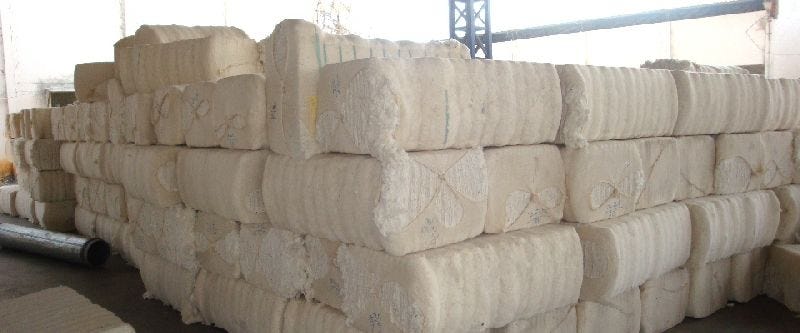India-Bangladesh cotton trade a thorny issue between neighbors

The recent statements by Showkat Aziz Russell, President of the Bangladesh Textile Mills Association (BTMA), have once again brought to the fore the complex and often fraught relationship between India and Bangladesh over cotton trade. Russell said "A big portion of cotton comes from India… But we want to shy away from India. Because, whenever our demand increases...they increase the price unethically or holding the shipment without valid reasons."
A history of tensions
The two South Asian neighbors, despite their geographical proximity and shared history, have had a complicated past in cotton trade. India, as a major cotton producer, has been a significant supplier to Bangladesh, the world's second-largest apparel exporter. However, this relationship has been marred by recurring issues, primarily centered around price volatility, supply disruptions, and quality concerns.
Key historical events
2010-11: India imposed a ban on cotton exports, leading to price spikes and supply shortages in Bangladesh.
- 2016-17: Concerns over dependence on a single source and price volatility due to Indian export policy fluctuations.
- 2020-21: Delays in shipments and phytosanitary certification issues reported.
- 2023-24: Allegations of price gouging during periods of high demand and organic certification discrepancies.
India’s perspective
Indian authorities and exporters have consistently defended their practices, attributing price fluctuations to market forces and export restrictions to domestic supply concerns. They have also highlighted efforts to streamline customs procedures and improve border infrastructure to facilitate trade.
A representative from the Cotton Association of India emphasized that Indian exporters operate in a free market, and prices are determined by supply and demand. They reiterated their commitment to fulfilling export obligations.
The path forward
While geographical proximity and economic factors favor continued trade between India and Bangladesh, addressing the underlying trust deficit is crucial. Bangladesh is actively seeking to diversify its cotton import sources, exploring options in Africa and other regions.
To foster a more stable and equitable trade relationship, stronger bilateral agreements and effective dispute resolution mechanisms are essential. Both nations must work together to enhance transparency, predictability, and quality standards in cotton trade.
The future of this vital trade partnership hinges on the willingness of both India and Bangladesh to forge a more cooperative and mutually beneficial relationship.
